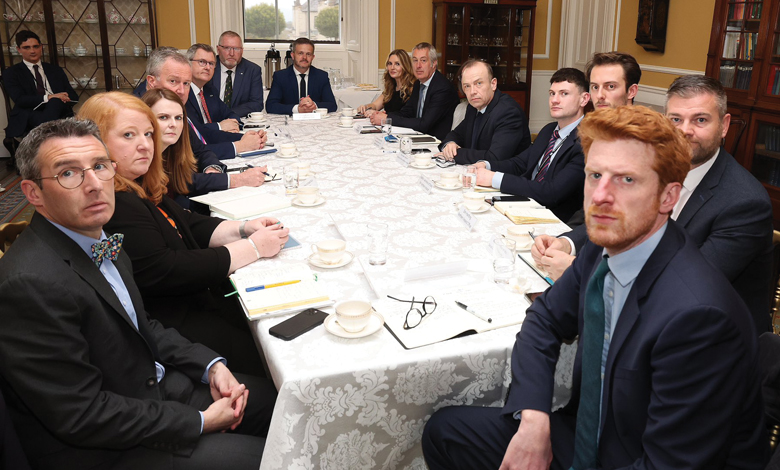Budget placing pressure on education

In the absence of devolved government, Secretary of State Chris Heaton-Harris MP’s carrot and stick approach to the 2023/24 budget has seen the Department of Education bear the brunt of cuts, with the Department currently considering how best to allocate its reduced funds.
Following the Secretary of State’s April 2023 Budget, the Department of Education is facing the highest real-terms spending cuts out of all devolved departments. The Department has received a funding cut of £64.3 million, which equates to around 2.6 per cent of its annual budget for the previous financial year.
Currently, the Department is undergoing a consultations process which is formally conclude in autumn 2023. The Department states that it is undergoing “the most challenging overall budget in recent history,” in which “the Department of Education, its arm’s length bodies, and third-party organisations face unprecedented funding challenges and cuts in 2023/24”.
“For the Department, the 2023/24 Budget allocation results in a funding gap in excess of £300m for 2023-24. Managing resource shortfalls of this magnitude will undoubtedly have a significant and adverse impact on the Department’s ability to deliver educational services in 2023-24,” the Department states.
‘Unremittingly bleak’ consequences of cuts
A group of researchers from Ulster University, Newcastle University, Queen’s University Belfast, and Stranmillis University College have warned that the poorest children in Northern Ireland will be the most affected being brought forward.
In a report entitled The consequences of the cuts to education for children and young people in Northern Ireland, researchers argue that any cost savings made in the current education Budget “will be dwarfed by the costs of poverty, deprivation, and mental health issues in the longer run”.

Credit: Northern Ireland Office
The researchers argue that the cuts being made in the Budget “will disproportionately impact the most disadvantaged children and young people in our communities,” and outline the set of programmes which will either be disadvantaged or ended as a consequence.
- An end to Happy Healthy Minds
- An end to Engage
- An end to the Digital Devices scheme
- An end to the Baby Book scheme
- A pause on capital development
- 28 new school projects paused
- A 40 per cent cut to Free Period Products budget
- A 50 per cent cut to the Shared Education budget
- A reduction in Nurture funding from £70 million to £62 million
- An end to schools coaching programme run by Irish Football Association (IFA) and Gaelic Athletic Association (GAA)
- An end to funding available to Young Enterprise NI
- A pause on a cashless scheme for schools
- A depletion of funding available to Extended Schools
- A significant shortfall in resource for pupils with SEN
- A pause on the recruitment of school crossing patrols
The researchers have called on the Secretary of State to “provide guidance on proposed cuts on a departmental level, in light of consultation with the Irish Government, which should respond to full public consultation on these proposals”.
“These should precede any significant changes to open-ended programmes being run by the Department of Education.”
The researchers also state that, in assessing the impact of funding reductions, “the Department of Education should take account of the high levels of disadvantage among particular minority ethnic and migrant groups and the disproportionate effects that cuts to services are likely to have on these groups”. “The Department should also recognise the interlinkages between these programmes and the risk that cuts to one area of service may affect families’ ability to access and engage with other services.”
Political reaction
Diane Dodds MLA, the DUP’s education spokesperson has outlined her belief that the Secretary of State’s Budget “does absolutely nothing to reverse and address the chronic underfunding of education across Northern Ireland,” further stating that “the baseline budget in recent years has been entirely incapable of meeting demand”.
Dodds further asserted: “The Special Educational Needs budget has doubled locally in the last eight years and without a corresponding uplift in the baseline there is a hole in the overall budget as a result. This proves that the current funding model is preventing public servants from proactively respond[ing] to emerging demand in our classrooms. It also curtails the Department’s ability to deliver a fair pay award to our dedicated and talented staff.”
SDLP spokesperson Daniel McCrossan MLA stated: “No amount of budgetary pressures can justify taking holiday hunger payments away from families who are struggling, counselling from children who need support with their mental health, or failing to provide the right environment for children with special educational needs. It is absolutely disgraceful that it is children who already face the biggest challenges in their young lives who are bearing the brunt of these cuts.”





